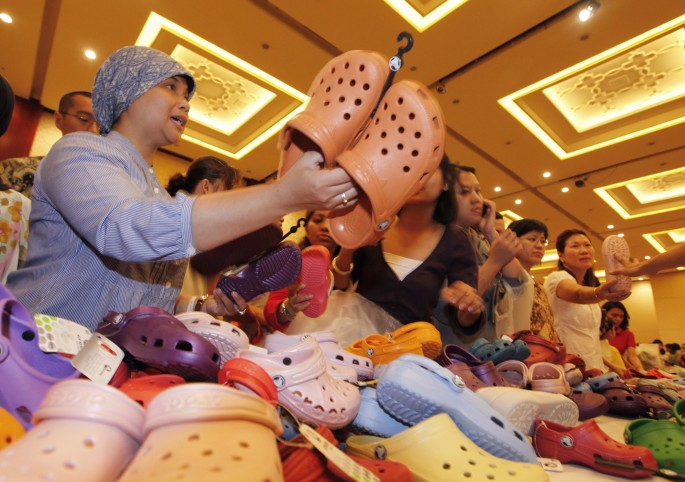Highly dangerous toxins were discovered in replicas of US shoe brand Crocs that can be directly absorbed through the skin.
A German study reports that large amounts of toxins called carcinogenic polycyclic aromatic carbons or PAHs can enter the human body through the skin. PAHs are known to be carcinogenic, mutagenic or teratogenic which simply means it can cause cancer and other deformities.
Apart from toxins that can seriously harm one's health, these replicas also contain heavy metals such as chromium and cadmium that can also pollute and destroy the environment.Crocs replicas are cheap and sold everywhere and it's been a top selling item in China according to the China News Service. Despite its distinct, toxic smell, retailers and online sellers usually consort to explaining that this odor comes from newly made shoes which will dissappear eventually.
But for those who own a pair of authentic Crocs, it has no foul smell due to this odor-resistant resin technology called Croslite. According to Cao Kuan, a materials scientist at the Institute of Oceanology of the Chinese Academy of Science, a real pair of Crocs is made from a harmless resin and replicas are produced with unknown waste recycled into a similar plastic resin. The result is a foul smelling odor from polyvinyl chloride polymer or PVC.
The smell, according to Cao, results from this PVC material. The University of Gothenburg in Sweden declared that PVC is one of the most hazardous, commonly used plastics due to "several hazardous additives".
Apart from these health problems, these counterfeits are just as uncomfortable and can cause accidents when worn. Geng Lidong, director of the dermatology department at Shandong Provincial Chinese medical Hospital explains that the plastic material blocks ventilation around the feet causing severe sweating resulting in fungal infections. Also, these replicas are very dangerous because they tend to get slippery and unstable. It is ill advised for children, pregnant women and geriatrics to wear them, Geng warns.




























